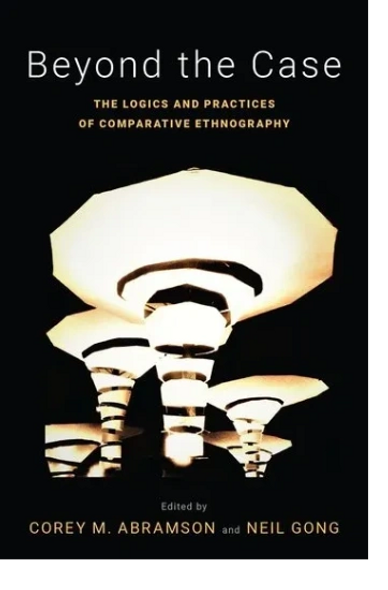Research
Overview
Past Projects
Past Projects
My research examines the connections between inequality, culture and health across the life course. Prior projects have examined topics including how education is associated with perceptions of racial discrimination in healthcare (with MSJ) how “adult day care” organizations maintain and justify control over older adults with dementia, the logics and decision-making styles of terminal cancer patients, and why middle-class cage-fighters participated in an activity that carried both physical risk and social stigma.
Past Projects
Past Projects
Past Projects

Addressing a broad range of topics provides opportunities to understand cross-context connections that might be obscured by a narrower focus. My work uses a variety of qualitative, quantitative and computational methods pragmatically depending on the analytical problem, level of analysis and context (with GA Fine).
The End Game
Past Projects
The End Game
The End Game: How Inequality Shapes Our Final Years (Harvard University Press 2015), uses comparative ethnographic fieldwork to show how durable mechanisms of inequality— health disparities, neighborhood effects, policy, wealth gaps, culture, and social networks—converge to create an unequal “end game” that structures the lives of older Americans. More info.
Contexts
The End Game

One recurrent thread across my projects is charting how culture — shared meanings, motivations, and strategies — connect past and present in a variety of real world contexts. I have written theoretically oriented works examining how 'competing' models of culture can provide analytical insights in contexts that vary on socio-historical and temporal scales . I later empirically elaborated these models—which draw on insights from diverse disciplines including sociology, cognitive science, medical anthropology, and biology (with Cicourel)—in The End Game.
Unequal Anatomies
My current book project both extends this line of inquiry and helps interweave the threads from my prior projects. I draw upon two-decades of participant observation research from diverse social settings in which the human body plays a central role to provide insights into the co-constitution of unequal health and social stratification in America.
Methodology
Examining complex issues, with large data sets, across diverse cases, has provided opportunities to work on methodological issues. This work has two main strands: (1) articulating the value of methodological pluralism (e.g. Beyond the Case, co-edited with Neil Gong) and (2) developing strategies for integrating computational social science techniques to improve scalability transparency, and replicability for multi-site projects (with the Medical Cultures Lab). Most recently, this has included hybrid machine learning approaches (e.g. with Zhuofan Li is in Socius). You can see some tools and more info on my lab group GitHub page .


